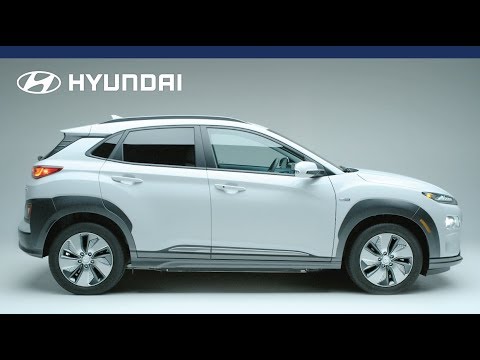Montreal (Special to Informed Comment) – As someone who regularly teaches courses on both Middle Eastern and environmental subjects, I have long been keenly aware of the double implications of participating in an economy that simultaneously destroys the planet while supporting human rights-abusing dictatorships. From the moment the first electric vehicles hit the market I felt the obligation to switch to that mode of transportation.
However, being privileged to live in a city with good public transport (Montreal) and typically using a car only for long journeys, I had to wait for the appearance of an EV with adequate range to meet my needs. The new Hyundai Kona seemed to fit the bill, and a week ago I finally took the plunge and got a Hyundai Kona.
As the previous owner of a Toyota Prius and a Honda Civic hybrid, I can say without hesitation that the Hyundai Kona is the most comfortable car I have ever owned, both in terms of its interior and its drivability.
It accelerates like a rocket, and the safety features are truly impressive. It steers you back into your lane if you wander, and slows down automatically if you approach the rear of another vehicle. It even suggests you take a coffee break if you have been on the road for a long time!
The EV model costs more than its gas-powered equivalent, but the data show that the cost is very much front-loaded, the high initial investment being offset over time by power and maintenance costs that are quite nominal. Even so, for me the decisive consideration was that since EVs are still priced beyond the means of many car-buyers, the fact that only increased demand will bring down the price means that those of us who can afford to buy an EV have a strong moral duty to do so.
Given that I now had the option to go electric, there was simply no way I was going to commit to continue paying into the criminal petroleum economy for the next ten years by buying a new gas-powered vehicle. Over 90% of Quebec’s power is produced by hydro-electricity, and it is a leader in wind energy, so that driving an electric car here really is a low-carbon enterprise.
Where I live, at least, range anxiety is wholly unjustified since there are currently over 2,000 charging stations all across Quebec, even in remote locations such as rural villages and national parks, and more are being installed every day. Still, I stop to recharge when the battery is still half full, since during the first week driving my new EV, mainly on highways, I noticed that my actual mileage is less than what was advertised. Still, on balance, and despite my initial sticker shock, I am now very comfortable with my decision.
I am proud to see that my province is leading North America in implementing the transition away from oil, with a firm commitment to EVs that includes not only a rapidly growing network of charging stations but also offers the most generous financial incentives anywhere on the continent: an $8,000 rebate on the purchase of any new EV, which is on top of the $5,000 offered by the Canadian federal government.
The car handles extremely well and feels quite solid on the road, unlike my Prius which always seemed ready to tip over on sharp curves. I have never been a fan of driving, but being behind the wheel of my new Kona is the closest it has ever felt to pleasurable. But when all is said and done, the true pleasure is the relief of knowing that I have, at long last and for the first time in my forty-three years of driving, forever broken the shackles that bound me to a destructive, exploitative system, stretching from dictatorial oil states to earth-wrecking Big Oil corporations, that I have always abhorred.
—-
Bonus Video added by Informed Comment:



 © 2024 All Rights Reserved
© 2024 All Rights Reserved